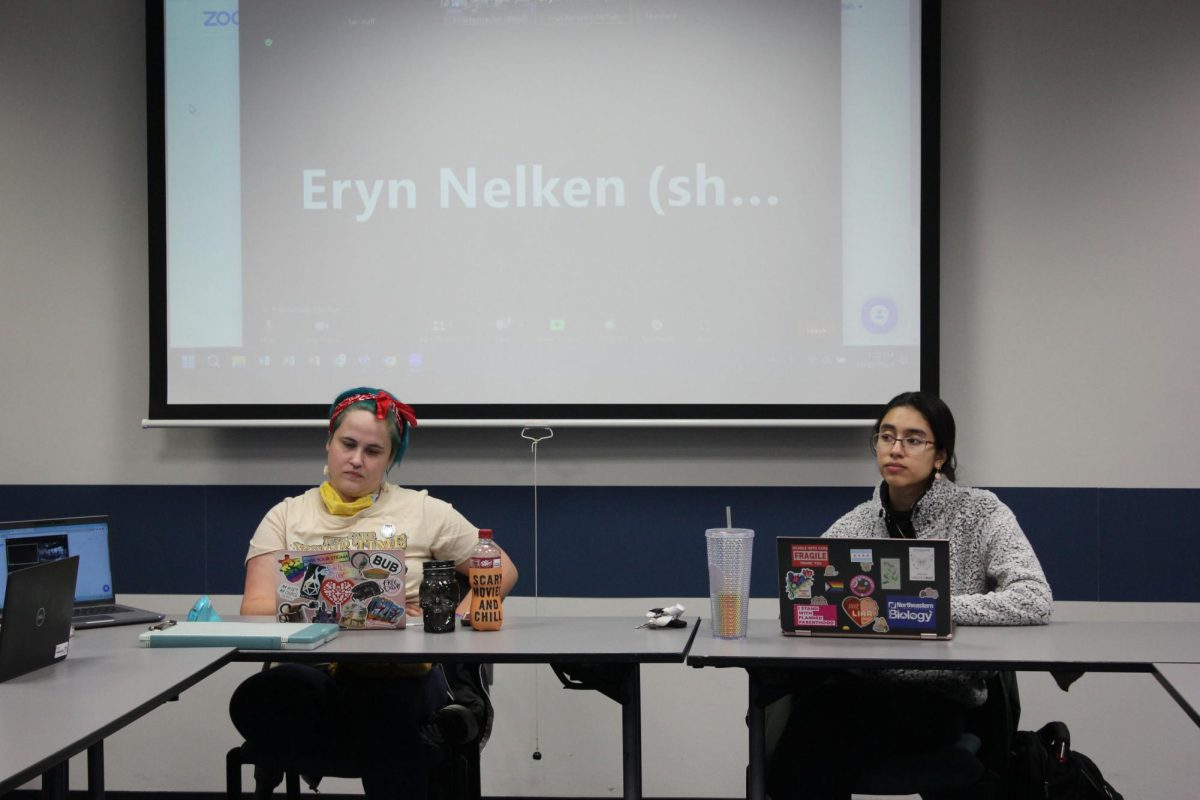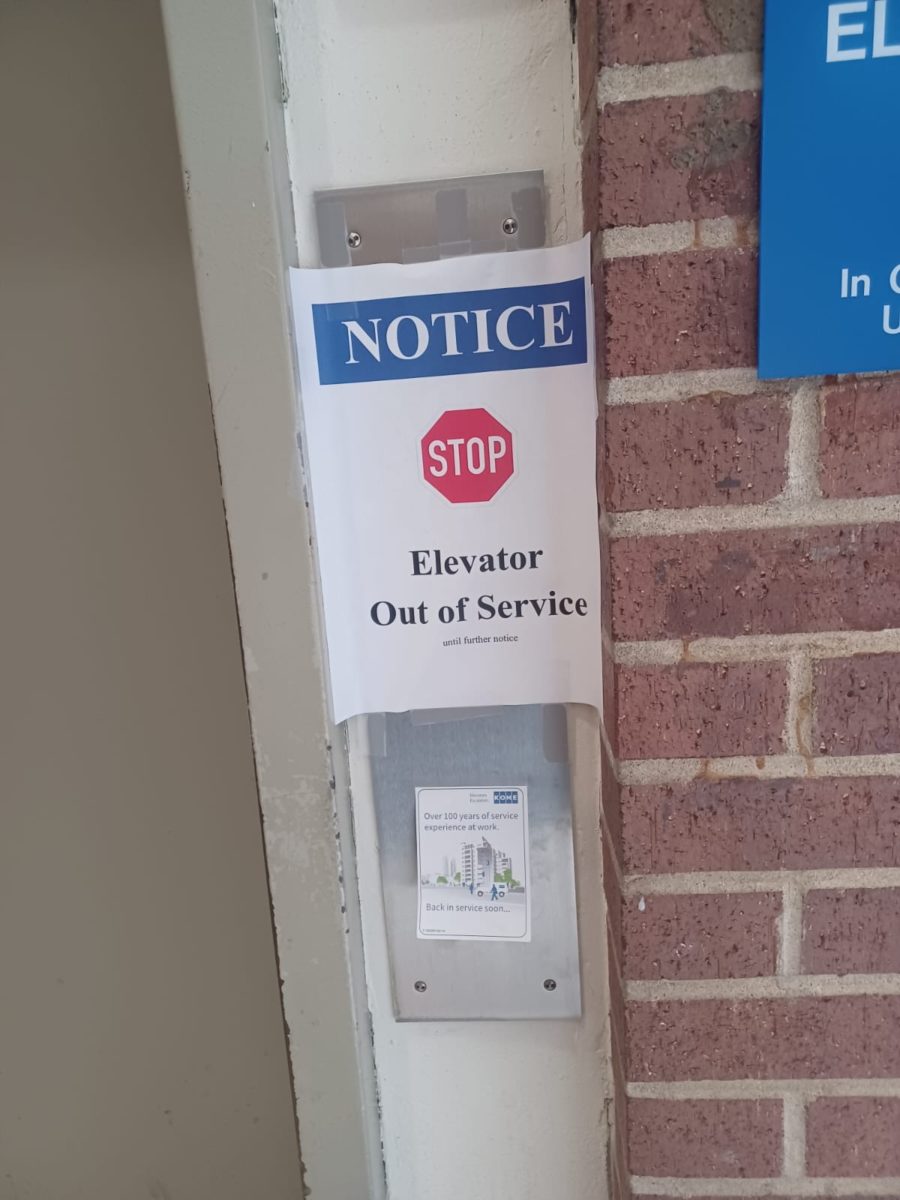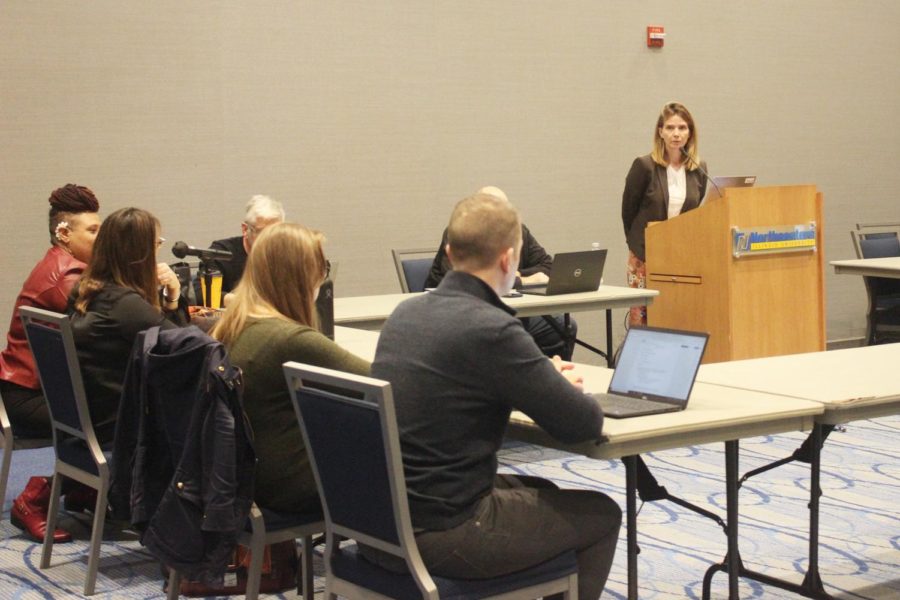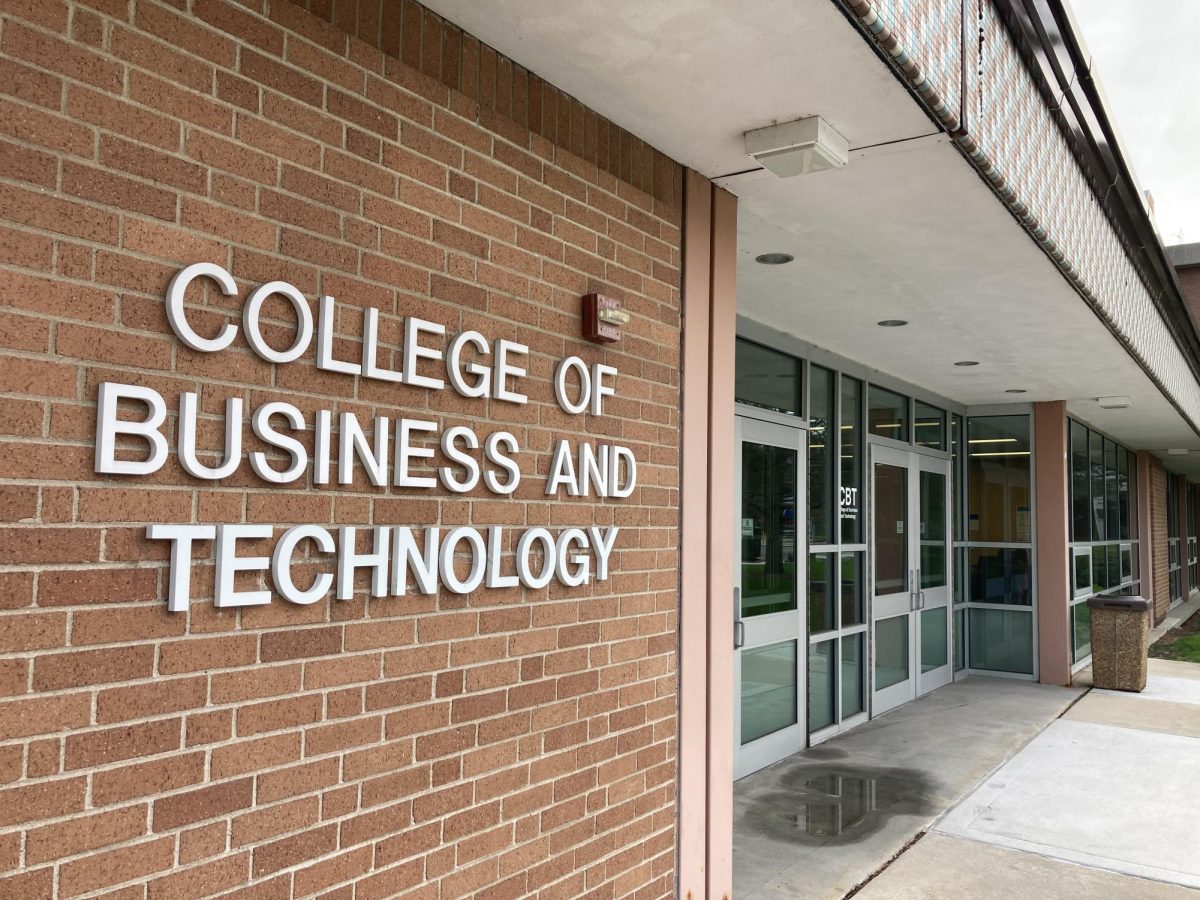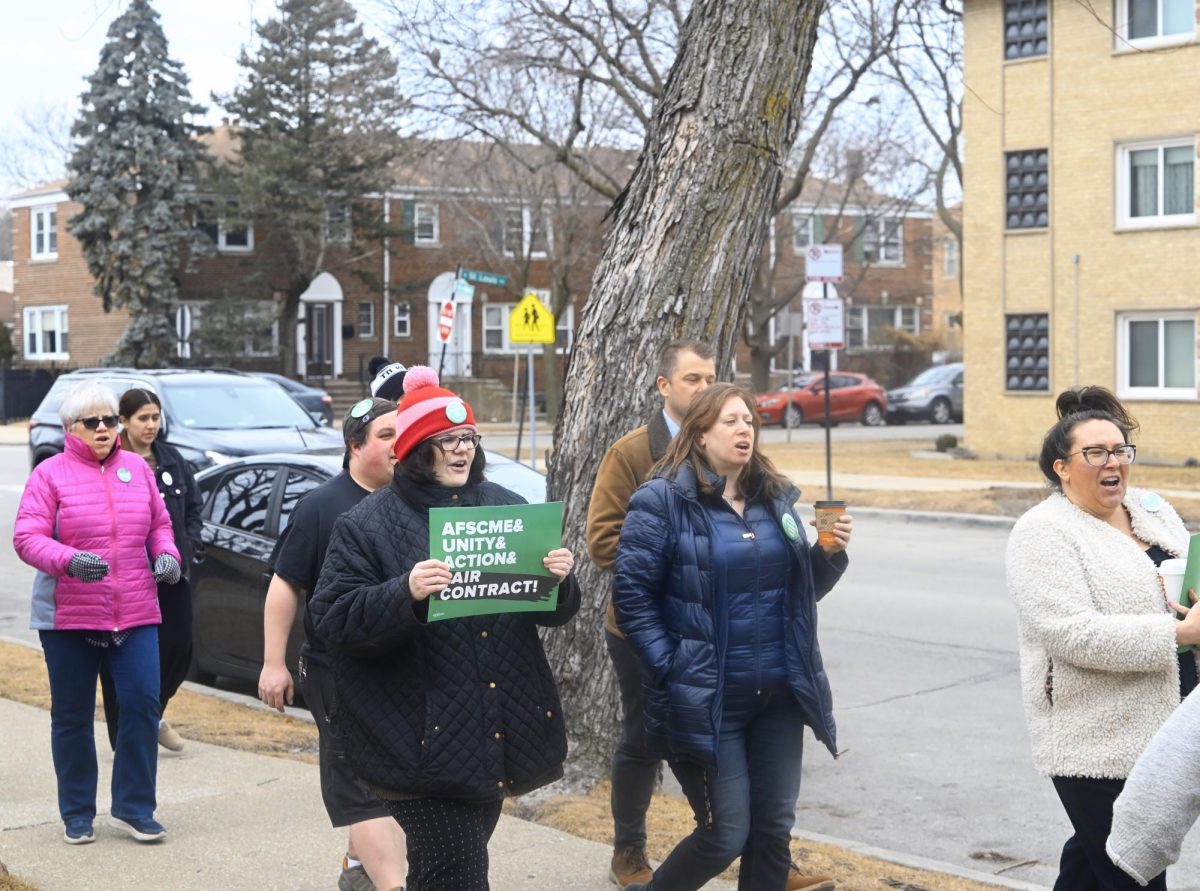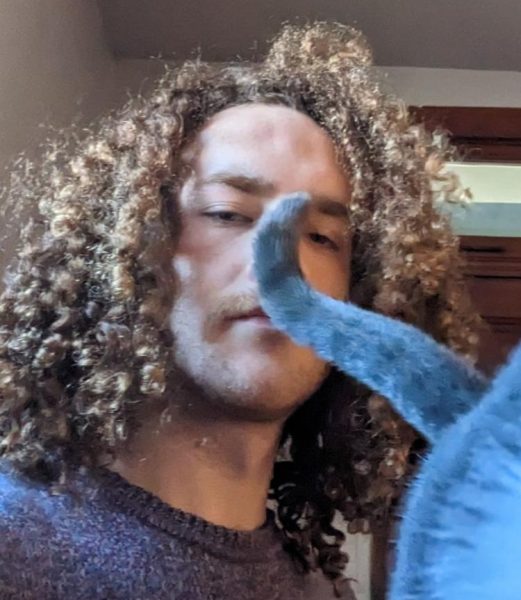NEIU’s Shared Governance bodies recently held a special joint meeting to discuss the challenges faced since implementing workplace software, Workday.
Since the beginning of its installation, many within the NEIU community have expressed difficulty both registering their hours worked and receiving the correct pay in a timely manner, among a litany of other clerical issues.
To this, Human Resources Director Abby Murray said, “As far as we are aware, everybody who has worked and has submitted time has been paid.” Although, she did allude to an issue with duplicate worker profiles that might have been the initial cause for these incidents.
However, Student Employment Coordinator Maria Lebron Figueroa clarified the extent of this issue. She said, “Student employment duplicates is not the only issue. We have onboarding issues as well.” She explained further that there are students who have appeared in Workday but have not had their required tax forms (W-4, I-9) processed and are unable to receive pay. According to Figueroa, this has resulted in student workers not being paid despite weeks or months of labor performed.
Upon hearing this, Vice President of Finance and Administration Manish Kumar was visibly taken aback. Kumar asked, “Maria, are you saying that there are still students who are not getting paid?” To which Figueroa confirmed that, given their inability to access Workday online and to submit their applicable tax documents, there were, in fact, students who have yet to be paid.
Kumar interrupted Figueroa, asking her to send a list of the affected students to HR and his team so they could handle the issue. To this, Figueroa said, “We have sent those lists to HR.” She continued, saying that the lists apparently get lost in the email despite them being sent multiple times and that this results in students still waiting for their documents to be processed and their pay to be doled out.
Throughout this interaction, Figueroa continued to make the connection between the uncompleted tax forms and the lack of pay being received, which Kumar seemed to misunderstand. Kumar said, “I-9 is a separate issue, I want to know: are there people who are working who are not getting paid.”
Again, Figueroa pushed to be understood, explaining that without access to Workday and without the ability to submit the proper paperwork, there was no way they would be able to receive their wages.
In an attempt to find a quick solution for this, Kumar recalled the federal changes in response to the COVID-19 pandemic that at one point allowed I-9’s to be processed via online methods, like email. Figueroa said, “As of July 1, 2023, that’s out. We have to have documents in person, not by email.”
Eventually, Kumar, Murray, Dr. Liz Rodriguez (timekeeping) and Figueroa came to the agreement that there was not sufficient time remaining to conclude the discourse and agreed on a future meeting being set.
Past this, there was discussion on some of the practical issues of Workday and how they could be addressed. Several of these concerns were echoed by multiple members of the meeting, with payroll again being a large point.
Both Faculty Senate Chair Nikolas Hoel and Student Government Association (SGA) President EJ Schumacher spoke to the issues their constituents have had in receiving wages throughout this process. Hoel explained, “In terms of payroll, some faculty are having real trouble understanding what they’re supposed to get paid how they’re supposed to get paid, and what back pay, they’re owed.”
In tandem, Schumacher said, “Some of our student workers weren’t receiving their paychecks, either not receiving them at all or just not receiving them on time.” In both of their statements, they also inquired about what was being done to address this.
Human Resources Manager of HRIS Matthew Michel was able to give information on the aforementioned duplicate profile issue that still seemed to be the biggest culprit for these problems.
Michel explained, “When we went live and we transported all the data from Banner (NEIU’s past payroll software) into Workday…we didn’t realize at the time that they were creating a duplicate record.”
According to Michel, it was because of this duplication in reporting that resulted in delays or inaccuracies in payroll. So, though he admits that their team was caught off guard by this initial implementation, there are structures in place that should be able to catch and quickly address any issues regarding duplicates in the future.
Outside of direct payroll issues, there was talk of the ticket processing system and where University employees may go to find information regarding these new processes.
Administrative and Professional Council (A&P) members Amie Jatta and Jesse Rutschman put forward questions regarding a suggestion box, a set of updated terms, jargon and directions to the new resources for Workday implementation. As Rutschman said, “Staff are looking for more direction to where to find these resources, and how these resources differ from previous processes…I think that’s one of the pain points for many of us.”
Murray informed those in attendance of the availability of these and other training resources on the NEIU Workday portal.
Further, in showing the progress that has been made in implementing Workday, Chief Information Officer (CIO) Rodriguez walked the meeting through the statistics regarding help desk tickets. Since the beginning of the rollout, there has been a total of 729 tickets submitted and at the time of the meeting there were 39 pending.
That being said, there was some discussion around exactly how a request for support becomes a ticket, and Kumar was able to clarify: “It should be a dynamic ticketing system that goes to Facilities, to UTS (University Technology Services), to HR, to Academic Affairs, to Scheduling, Student Affairs… But we are not there yet. At this point, the systems are manual.”
In regards to HR scenario testing that occurred to preempt some of these issues, CIO Rodriguez said, “We had over 1,627 different types of scenarios that we ran across before going live. Which means that we avoided 1,627 problems, but that doesn’t mean that we captured everything.”
Julia Philyaw – representing Avaap, the IT service management company NEIU has hired to manage the rollout of Workday – relayed her own experience of being a Workday end user before giving some context for the complexity and enormity of the change.
Philyaw went on to say, “The purpose of our adoption project is to listen to the feedback from all of you in terms of how you’re experiencing and living within Workday. We know some of those have not been ideal.”
Ultimately, the consensus around Workday is that it is a work in progress that should only improve as NEIU continues its work with it. And as was repeated by several people throughout the meeting, the goal is to “make Workday work for us.”
In addition to those already mentioned, Dr. Shreya Patel hosted the Nov. 3, 2023 meeting with Interim Associate Provost Effie Kritikos, as well as Rodriguez, Kumar and Murray attending as panelists.
Shared Governance is made up of multiple bodies, including organizations such as the Faculty Senate, Student Government Association (SGA) and University Advisory Council (UAC), that meet regularly to advise the President and Board of Trustees.
According to their section of the NEIU website, Shared Governance “includes voices from all university constituencies in decision-making, goal-setting, and problem-solving at the University.”
This body rarely holds joint meetings. However, they did allude to having a follow-up to this one in the near future. When there has been an agreed-upon meeting time, they will set a date, and, when this happens, the entire NEIU community will be informed via a Targeted Announcement. As always, everyone is encouraged to tune in!




